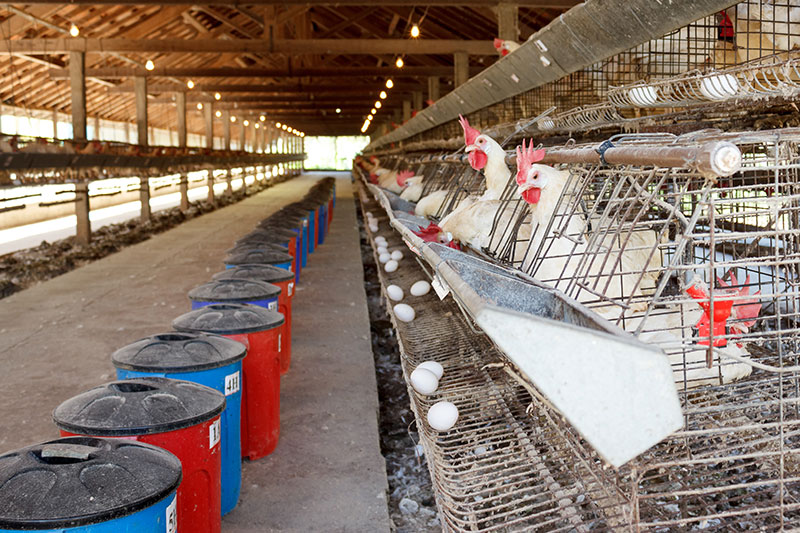Does "cage-free" mean "good life"? Not always.

It’s a valuable move, one that follows a similar movement in the US, where hundreds of retailers and restaurants, major and minor, have already pledged to source only cage-free eggs by various dates. But while this is unquestionably a positive change in the advancement of animal welfare, some critics have noted that merely going “cage-free” doesn’t mean chickens will be living a bucolic life, pecking at grubs in sunny fields.
The move to cage-free is less a statement about how hens will be raised than how they won’t be raised: cage-free as a qualification rules out the practice of battery-caged hens, in which the birds are kept in individual cages barely larger than the bird itself. In battery cages, hens often can’t stand up, can’t turn around, can’t spread their wings. They develop debilitating foot issues from standing on metal grates.
But in the US, many “cage-free” eggs come from hens kept in what are commonly called aviaries, essentially giant versions of the battery cages in which many hens are kept in a single space. This allows the birds to move around, but conditions besides that are not necessarily better: cage-free in this sort of setting does not require much, if any, access to the outdoors, nor do the birds have very much room to themselves, and illnesses and fights are common. These flocks also stir up vast amounts of dust, which can be dangerous to the farmers who keep them.
Pasture-raised hens, which have extensive access to the outdoors and to the variety of food sources (grasses, other plant matter, bugs) that chickens prefer, are significantly more expensive than merely cage-free, though that doesn’t make them particularly expensive by the standards of other proteins. (Many sell for around $6 per dozen, more than twice the cost of cage-free eggs at places like Trader Joe’s.) If you’re confused by all these labels, you’re not alone. We have a handy (and comprehensive if we do say so ourselves) guide to egg-carton labels right here to help you make a little sense of all these marketing claims.
So the big question is: While the UK’s move, as well as the US’s previous move, towards cage-free eggs is undoubtedly a step forward, will the nice name fool consumers into thinking these eggs come from chickens living their ideal chicken-lives?